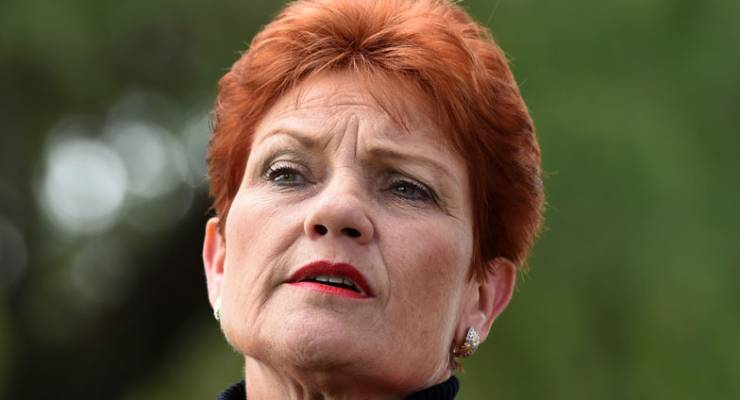
On current form, the legacy of Malcolm Turnbull’s prime ministership will consist primarily of the establishment of Pauline Hanson’s One Nation as a long-term part of the Australian politics.
Given her personal vote in Queensland, Hanson was always a strong candidate to be elected to the Senate whenever the 2016 election was held. But Turnbull’s decision to call a double dissolution election, which cost his government seats in the House of Representatives, elected not just Hanson but also three other One Nation senators — and One Nation almost won a fifth Senate seat. The return of Hanson, a professional political candidate and wealthy celebrity, to politics was bad enough, but the election ushered in a far-right conspiracy theorist obsessed with the Rothschilds in Malcolm Roberts and a flaky serial litigant from Western Australia who lost his spot in record time.
[Pauline Hanson definitely not campaigning in Qld while talking up One Nation]
The return of One Nation mean the return of a question that dogged the Liberals 20 years ago: would they preference her and her party above Labor? Or, to be accurate, it dogged John Howard — Howard was virtually alone in holding out against the wave of disgust that Hanson produced within his own party, until at length he caved and joined senior figures like Peter Costello in calling for Liberal Party branches to put Hanson and her foul ilk last on how-to-vote cards.
Now Turnbull faces the same question — one he has been avoiding. The West Australian’s Shane Wright asked him about it at the Press Club nearly two weeks ago and he ducked it, saying it was “a matter for party divisions” and that he was “not a commentator on the political evolution of One Nation” (not being a commentator is one of Turnbull’s favourite reasons for avoiding sensitive topics). The WA Liberals’ decision to do a preference deal with One Nation, however, makes his refusal to comment increasingly difficult. Just how difficult was shown by Minister for Forgetting Things Arthur Sinodinos on Sunday when in response to the WA deal he declared that One Nation was “a very different beast to what it was 20 years ago” and “more sophisticated.”
[Charity really does begin at home, Pauline]
The primary policy difference between the current version of One Nation and the original venture is that it has now embraced economic nationalism and protectionism, switched the focus of bigotry from Asian Australians to Muslim Australians, and elevated the anti-family law agenda of men’s rights groups. Its peddling of race hatred remains as unashamed as in the late 1990s. It’s hard to understand why Sinodinos believes that One Nation remaining every bit as bigoted as it was previously, while embracing highly economically damaging protectionism that will harm jobs, economic growth and investor confidence, makes Hanson more “sophisticated” in the eyes of a party notionally committed to free trade.
Turnbull’s willingness to greenlight his WA colleagues’ dealing with Hanson, which is a significant departure from the tradition established by Howard, is likely to encourage the LNP in Queensland to negotiate a similar deal. It almost certainly means the establishment of One Nation as a powerful minority party in both WA and Queensland. And it invites another question: will the Liberals negotiate a preference deal with One Nation for the next federal election?
With discussion underway about who might replace Turnbull as his beleaguered government struggles in the polls, his one lasting achievement as prime minister could end up being that he enabled the foul tumour of Pauline Hanson to metastasise across the body politic, with long-term and significant damage for Australia.








Crikey is committed to hosting lively discussions. Help us keep the conversation useful, interesting and welcoming. We aim to publish comments quickly in the interest of promoting robust conversation, but we’re a small team and we deploy filters to protect against legal risk. Occasionally your comment may be held up while we review, but we’re working as fast as we can to keep the conversation rolling.
The Crikey comment section is members-only content. Please subscribe to leave a comment.
The Crikey comment section is members-only content. Please login to leave a comment.